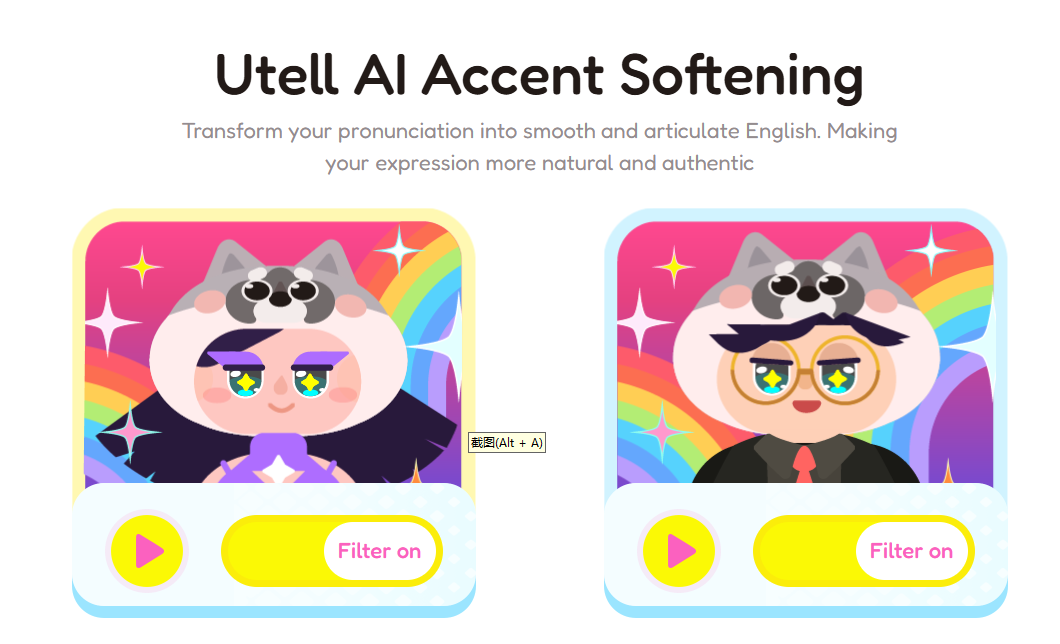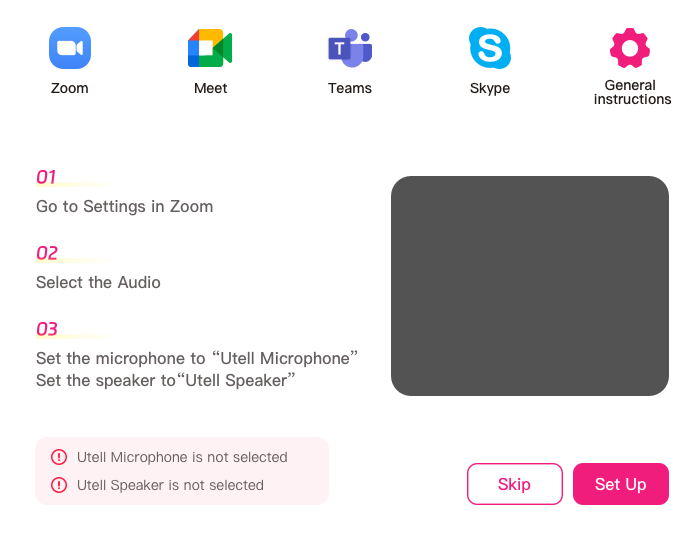How to counter stereotypes in business [Step-By-Step]
Stereotypes often shape how people interact at work and with customers. Unfortunately, accent-related biases can create barriers to inclusivity and career growth. For example, 60% of employees feel pressured to change their accents for better opportunities. These biases also affect clear communication and morale. The Utell AI accent filter offers a solution. By using accent softening AI tools, it promotes clarity while respecting cultural identity.
The Best AI Accent Filter
Understanding Stereotypes and Accent Bias in Business
Defining stereotypes and their influence on workplace dynamics
Stereotypes are mental shortcuts people use to categorize others, but they often lead to unfair assumptions. In business, these assumptions can shape how employees interact, collaborate, and grow. For instance, stereotypes might limit opportunities for certain groups, creating barriers to promotions or high-visibility projects. They can also lower job satisfaction and motivation, especially when employees feel undervalued.
Harvard Business School Professor Julie Battilana once said, “Business as usual is politics as usual.” This highlights how deeply stereotypes can influence workplace culture.
Stereotypes don’t just affect individuals—they can create tension among teams, making collaboration harder. When people hesitate to share ideas due to fear of judgment, innovation suffers. Countering stereotypes is essential to building a workplace where everyone feels valued and heard.
The prevalence of accent-related biases in professional settings
Accent bias is one of the most overlooked forms of discrimination. Non-native English speakers often face unfair treatment, even when their skills and qualifications match or exceed those of their peers. Research shows that listeners may hold negative biases toward non-native accents, even when they fully understand the speaker. This bias can lead to lower pay, fewer job opportunities, and even career stagnation.
In customer service roles, the impact is even more pronounced. Studies reveal that 67% of contact center agents feel undervalued due to accent criticism. This not only affects morale but also contributes to high turnover rates, with some companies reporting up to 45% annual attrition. Addressing these biases isn’t just about fairness—it’s about finding solutions that improve employee retention and customer satisfaction.
Examples of accent bias in hiring, customer service, and marketing
Accent bias shows up in many areas of business, but hiring is one of the most common. Employers often favor candidates who speak “Queen’s English,” even though it represents only 3% of the global population. This preference excludes talented non-native English speakers from opportunities they deserve. In one case, Kahakua v. Friday, a qualified meteorologist was denied a promotion simply because of his Hawaiian accent.
In customer service, accent bias can harm a company’s reputation. Negative customer interactions often stem from stereotypes about accented employees, leading to unfair complaints. For example, 20% of negative feedback in a study of 10,000 reviews was related to an agent’s accent, not their performance. Marketing also isn’t immune. Brands that rely on “standard” accents in campaigns risk alienating diverse audiences. Countering stereotypes in these areas can help businesses build trust and inclusivity.
The Role of Utell AI Accent Filter in Countering Stereotypes

How the accent filter works to neutralize biases
The Utell AI accent filter uses advanced AI technology to soften accents in real-time. As you speak, it adjusts your pronunciation to make your words easier to understand. This feature doesn’t erase your cultural identity. Instead, it enhances clarity, especially in diverse workplaces or customer interactions. By breaking down communication barriers, the accent filter helps reduce unconscious bias. It ensures that your message is judged by its content, not by how it sounds. This makes conversations smoother and more inclusive, whether you’re in a meeting or on a customer call.
Benefits of mitigating accent discrimination for businesses
When you address accent-related biases, your business benefits in measurable ways. For example, companies that use AI accent neutralization often see happier customers. One company reported a 30% boost in customer satisfaction after adopting accent-neutralization techniques. Customers felt understood, which led to better interactions. Clear communication also improves efficiency. With fewer misunderstandings, employees spend less time repeating themselves. This reduces metrics like Average Handling Time (AHT) and Average Resolution Time (ART). By mitigating accent discrimination, you create a workplace where everyone can thrive.
Benefit | Description |
|---|---|
Enhanced Customer Satisfaction | A company experienced a 30% increase in customer satisfaction after implementing accent-neutralization techniques. Customers felt heard and understood, leading to happier interactions. |
Increased Operational Efficiency | Clear communication reduces the need for repetition, improving metrics like Average Handling Time (AHT) and Average Resolution Time (ART). This efficiency is achieved by breaking down accent barriers. |
Promoting inclusivity while preserving cultural identity
Using AI accent neutralization doesn’t mean losing your unique voice. The Utell AI accent filter balances inclusivity with cultural diversity. It softens accents without erasing them, allowing you to keep your identity intact. This approach fosters an inclusive business environment where everyone feels valued. By addressing unconscious bias, you help build a workplace that celebrates differences. When employees feel accepted, they’re more likely to share ideas and collaborate. This creates a culture of innovation and trust, which benefits your entire organization.
Implementing the Utell AI Accent Filter in Business

Ethical considerations in using accent-neutralizing technology
When using accent-neutralizing tools like the Utell AI accent filter, you need to think about the ethical implications. Accents are more than just speech patterns—they’re a part of cultural identity. Neutralizing them could unintentionally diminish diversity in communication. It’s also important to avoid reinforcing stereotypes. If employees feel their accents are being “corrected,” it might send the wrong message, implying that certain accents are less professional.
Another key concern is employee autonomy. Forcing someone to use accent-neutralization technology can feel invasive. Employees should have the freedom to decide whether they want to use such tools. Balancing inclusivity with respect for individuality is crucial. By addressing these concerns, you can ensure that the technology promotes fairness without compromising cultural diversity.
Step-by-Step Guide
Download and Install Utell AI
Visit the official Utell AI website and download the application. The installation process is straightforward, with clear instructions guiding you through each step. Once installed, launch the app to begin configuring your settings.Create Your Account
Open the app and sign up for an account. Use your email address to register and create a secure password. If you already have an account, simply log in. This account will store your preferences and settings, making it easy to access them across devices.Connect Utell AI to Valorant
Navigate to the settings menu in the Utell AI app. Select the option to integrate with Valorant. The app will guide you through syncing your voice chat with its real-time accent filter. Ensure your microphone and audio settings are properly configured for optimal performance.Set the microphone as "Utell Microphone", set the speaker to "Utell Speaker". That is all things you need to do.
Measuring the impact on inclusivity and business performance
After implementing the accent filter, it’s essential to measure its impact. Start by looking at inclusivity. Are employees from diverse backgrounds feeling more valued? You can gather feedback through surveys or one-on-one discussions.
Next, assess business performance. Metrics like customer satisfaction and employee retention can reveal a lot. For example, if your customer service team sees fewer complaints about accents, it’s a sign that the technology is working. Operational metrics like call resolution times can also show improvements.
By regularly reviewing these factors, you’ll know if the accent filter is helping your business thrive in a global business environment. This approach ensures you’re not just addressing accent discrimination but also creating a more inclusive and efficient workplace.
Addressing stereotypes in the workplace is more than just a moral responsibility—it’s a smart business move. When you tackle biases, you create a fair environment that fosters collaboration and innovation. Employees feel valued, which boosts job satisfaction and performance. Plus, organizations that challenge stereotypes attract and retain diverse talent.
The Utell AI accent filter plays a key role in this transformation. By softening accents without erasing identity, it ensures your communication is clear and inclusive. This tool helps reduce unconscious bias, leading to better customer satisfaction and stronger team dynamics.
If you’re looking for other innovative tools to build an equitable workplace, consider these:
Tool Name | Description |
|---|---|
Applied | Randomizes and anonymizes test answers for scoring to minimize bias among hiring managers. |
Toggl Hire | Offers over 20,000 pre-made test questions to assess qualifications based on skills. |
AllVoices | Allows employees to anonymously report workplace issues, promoting open communication. |
Adopting tools like these shows your commitment to inclusivity. It’s time to embrace innovation and create a workplace where everyone thrives.
FAQ
How does the Utell AI accent filter preserve cultural identity?
The filter softens accents without erasing them. It ensures your unique voice remains intact while improving clarity in global business communication.
Can the Utell AI accent filter help with ai-informed hiring decisions?
Yes, it reduces unconscious bias during interviews. This ensures candidates are evaluated based on skills, not accents, promoting fair and inclusive hiring practices.
Is the Utell AI accent filter suitable for global teams?
Absolutely! It enhances communication across diverse teams, making collaboration smoother. It’s perfect for businesses operating in global markets or serving international customers.
See Also
Utell AI Accent Filter: The Ultimate Global Business Solution
Discover Why Utell AI Excels as Meet's Accent Filter
Utell AI Accent Filter: A Trusted Partner for Global Business
Enhance Clarity in Gaming Chats Using Utell AI Accent Filter
Achieve Crystal Clear Zoom Calls with Utell AI Accent Filter

